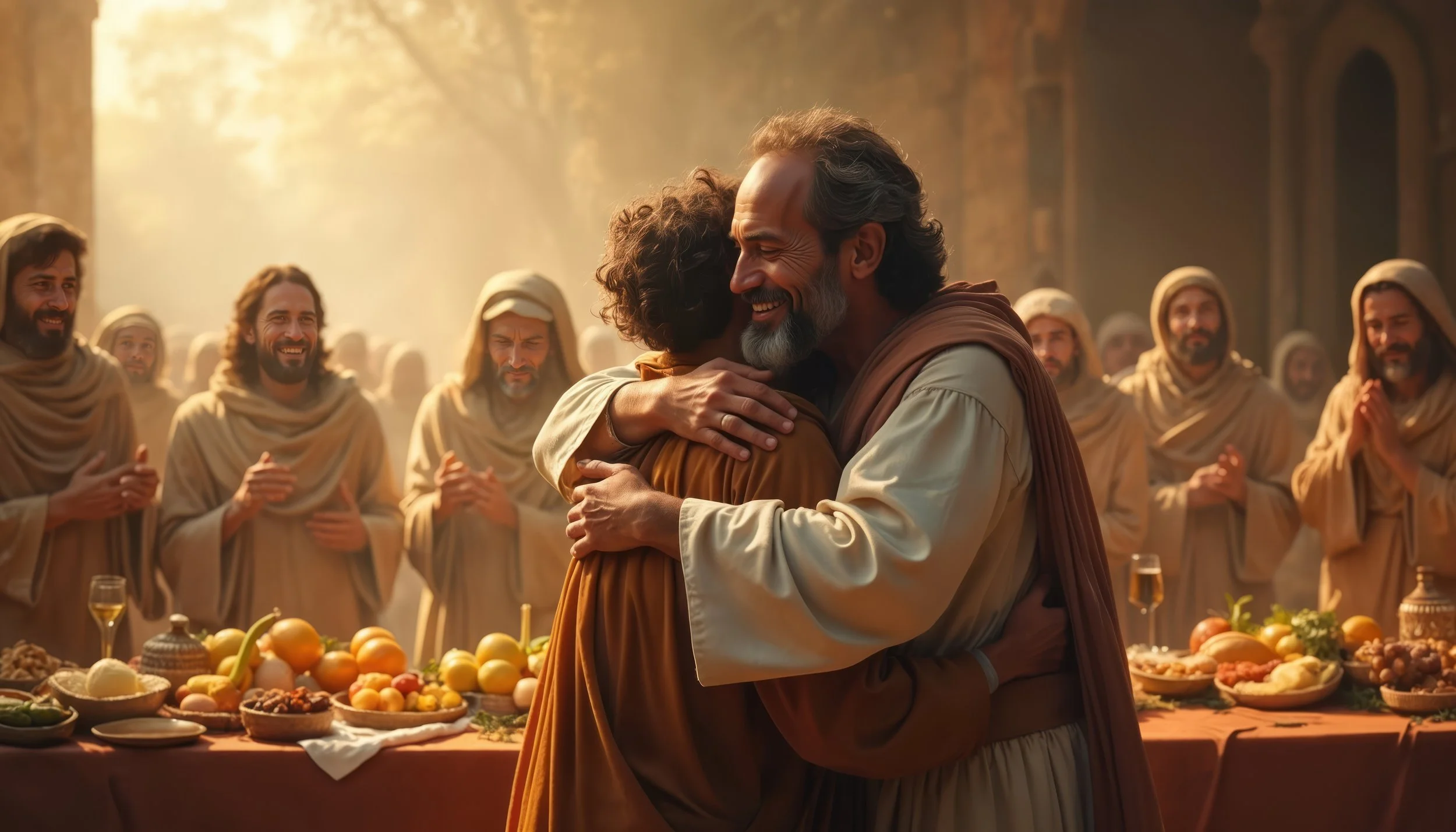Joseph and the Grace of Reconciliation
Genesis 44:18 – 45
Pray
As we open the Scriptures, we ask: Lord, show us the grace of Jesus. Let this passage speak deeply to our hearts.
What Do You See in the Passage?
The story of Joseph’s reunion with his brothers is more than a touching family drama — it’s a powerful picture of forgiveness, divine perspective, and reconciliation. It mirrors the story of Christ and teaches us how to live in grace with one another.
The Sound of Grace (Genesis 45:2)
"He wept so loudly that the Egyptians heard him."
Joseph’s cry wasn’t silent or reserved. It was loud, emotional, raw. This wasn’t just about tears — it was the eruption of years of pain, forgiveness, and love. His weeping tells us that real forgiveness touches the soul. It’s okay to feel. It’s okay to show emotion when processing hurt and healing.
The Disarming Power of Forgiveness (Genesis 45:3-4)
"But his brothers could not answer him, for they were dismayed at his presence. Then Joseph said to his brothers, 'Please come closer to me.'"
The brothers were shocked, disheartened, and likely afraid — overwhelmed by the sudden reversal and realization. Joseph saw their fear and responded not with judgment but with invitation: “Come closer.” This is what forgiveness does — it draws near instead of pushing away.
I remember meeting a former work colleague who had hurt and betrayed me years before — his body language showed hesitation and guilt. The discomfort was written all over his face. Joseph’s brothers felt the same way. And just like them, sometimes people who’ve hurt us need help feeling safe again.
Letting Go of the Past (Genesis 45:5)
"Do not be distressed or angry with yourselves..."
Joseph had every right to remind his brothers of what they did — but he didn’t. He didn’t rehash their betrayal. Instead, he gave them a bigger perspective: “God sent me before you.” He didn’t hold onto bitterness. He helped his brothers move past their own guilt.
Forgiveness is not just about letting go of anger; it’s also about helping others let go of shame.
God’s Sovereignty in the Story (Genesis 45:6-8)
The famine had just begun — only two of seven years had passed. If Israel hadn’t moved under Joseph’s protection, they might not have survived. What they meant for harm, God used for good. Joseph saw purpose in the pain. He saw God's hand in the hardship.
Emotion Is Part of Healing (Genesis 45:14-15)
"Then he fell on his brother Benjamin’s neck and wept..."
Forgiveness isn’t sterile. It’s full of feeling. Many avoid reconciliation because they fear vulnerability. But Joseph shows us: it’s okay to cry. Emotions are part of the process. Healing often comes through those tears.
No Shame in Your Story (Genesis 45:16-20)
Joseph never hid where he came from. Pharaoh celebrated his reunion. Joseph’s integrity and God’s favour opened the door for blessing. When you’re not ashamed of your journey, God can use it to elevate others.
Joseph, a Picture of Jesus
Betrayed by his people, like Jesus
Sold out and handed over to Gentiles, like Jesus
Exalted among the Gentiles, like Jesus
Reconciled to his people, like Jesus will be
Joseph's story points us prophetically to Christ. And just like Joseph made room for his brothers, the Gentile church has a role in facilitating the reconciliation between Jesus and His people — the Jews.
“Do Not Quarrel on the Journey” (Genesis 45:24)
This gentle command is packed with wisdom. On the journey to reconciliation, there’s temptation to blame, argue, or relive the pain. But Joseph says — don’t. Look forward, not backward. Focus on restoration, not resentment.
What Do We Learn About God, People, and Ourselves?
God can use betrayal and hardship to bring about blessing and purpose.
People often feel shame and discomfort when they've hurt someone — we must help them find peace.
Ourselves — we are called to be facilitators of healing, not just recipients of it.
How Can We Apply This as the Church?
As the Church, we are a house of grace and healing. Let’s make it our mission to:
Facilitate restoration in relationships
Help offenders feel safe and welcomed
Extend forgiveness freely, even without an apology
Prioritize healing over history
Let emotions be part of the journey — not something to hide from
What Will You Do ?
No matter where you are in your walk with God:
Reach out to someone who has hurt you.
Make them feel safe in your presence.
Let grace speak louder than pain.
This is your moment.
Repent. Believe. Be Baptised.
Let Jesus, the greater Joseph, bring you into a place of reconciliation — with God, with yourself, and with others.

